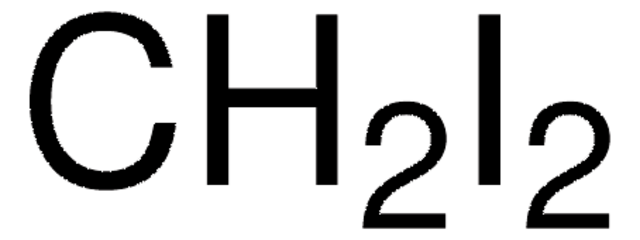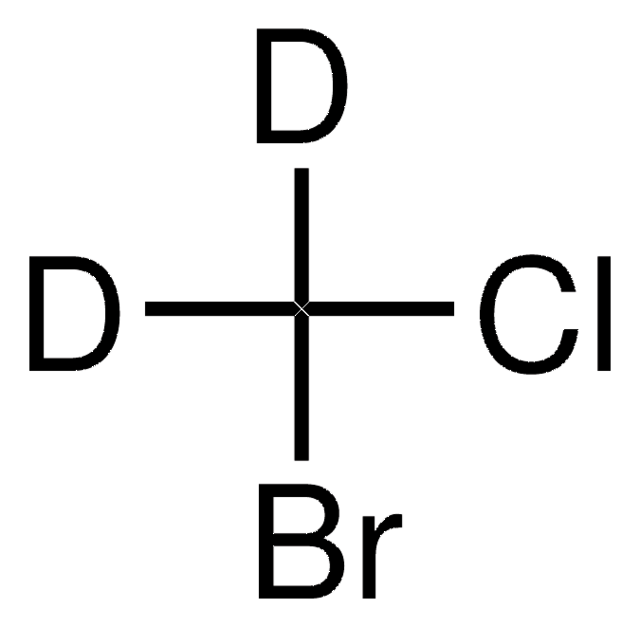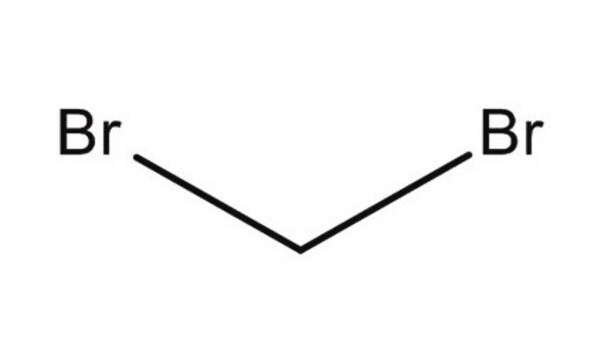135267
Bromochloromethane
contains 100 ppm BHT as inhibitor, ≥99.5%
Synonyme(s) :
Chlorobromomethane
About This Item
Produits recommandés
Densité de vapeur
4.5 (vs air)
Niveau de qualité
Pression de vapeur
117 mmHg ( 20 °C)
Essai
≥99.5%
Forme
liquid
Peut contenir
100 ppm BHT as inhibitor
Indice de réfraction
n20/D 1.482 (lit.)
pb
68 °C (lit.)
Pf
−88 °C (lit.)
Densité
1.991 g/mL at 25 °C (lit.)
Groupe fonctionnel
bromo
chloro
Chaîne SMILES
ClCBr
InChI
1S/CH2BrCl/c2-1-3/h1H2
Clé InChI
JPOXNPPZZKNXOV-UHFFFAOYSA-N
Vous recherchez des produits similaires ? Visite Guide de comparaison des produits
Catégories apparentées
Description générale
Application
Mention d'avertissement
Danger
Mentions de danger
Conseils de prudence
Classification des risques
Acute Tox. 4 Inhalation - Eye Dam. 1 - Ozone 1 - Skin Irrit. 2 - STOT SE 3
Organes cibles
Respiratory system
Code de la classe de stockage
6.1C - Combustible acute toxic Cat.3 / toxic compounds or compounds which causing chronic effects
Classe de danger pour l'eau (WGK)
WGK 2
Point d'éclair (°F)
Not applicable
Point d'éclair (°C)
Not applicable
Équipement de protection individuelle
Eyeshields, Gloves, type ABEK (EN14387) respirator filter
Faites votre choix parmi les versions les plus récentes :
Déjà en possession de ce produit ?
Retrouvez la documentation relative aux produits que vous avez récemment achetés dans la Bibliothèque de documents.
Les clients ont également consulté
Protocoles
US EPA Method 8260 describes the analysis of volatile organic compounds in solid wastes and ground waters. This application illustrates the analysis of many compounds commonly analyzed by this method using purge and trap coupled to GC-MS.
Notre équipe de scientifiques dispose d'une expérience dans tous les secteurs de la recherche, notamment en sciences de la vie, science des matériaux, synthèse chimique, chromatographie, analyse et dans de nombreux autres domaines..
Contacter notre Service technique















